
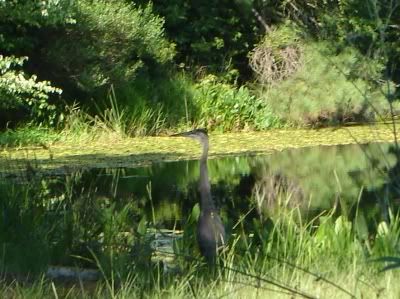
Great Blue Heron in Fred George Basin July 3, 2006. Photo taken within property once threatened by development, now slated for conservation.
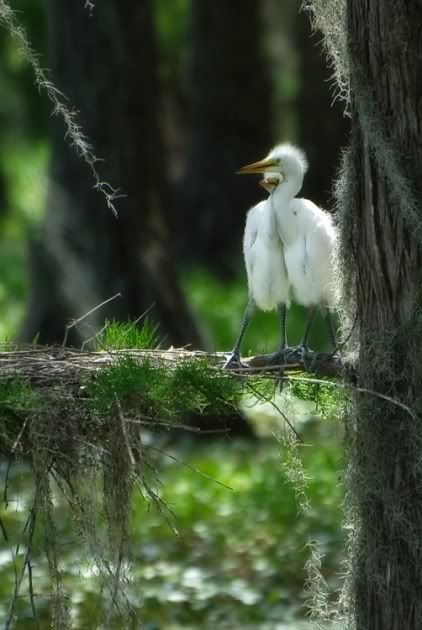
Snowy egret chicks nesting in Fred George Basin, Spring 2009. Photo courtesy Richard Leighton, Florida Nature Photography.
Summer 2009 Update
Note: click here to view our previous update.
We recently received the most exciting news to date regarding our three year campaign to Save Fred George Basin. Leon County has finalized the purchase and preservation of a sensitive 78-acre parcel that had been previously slated for development. The property contains karst wetlands used as core Wood Stork foraging habitat, and the pristine Fred George Pond. WPS supports the county’s continuing efforts to negotiate with landholders in order to place several adjacent properties into conservation, including a small lot containing the important Fred George Sink, which feeds into the Floridan Aquifer and the City of Tallahassee drinking water supply.
It has been an active nesting season for endangered wood storks in Fred George Basin’s Wildwood rookery. With overdevelopment in South Florida pushing more wood storks north from their original habitat, it is more critical now than ever that they be protected. Click here to see recent photos of wood storks and other wildlife in Fred George Basin.
Meanwhile, Fat Cat builders have begun a public relations and lobbying campaign to undermine current wood stork protections by downgrading their endangered status. It seems wealthy developers will stop at nothing to pave over our beautiful state. Despite a banner nesting season in 2009, biologists are not convinced that wood storks are on the path to a sustained recovery, primarily due to overbuilding in South Florida. You can learn more about this issue by visiting our blog post here. Watch for future updates from us via MySpace, Twitter, Facebook, and our main blog.
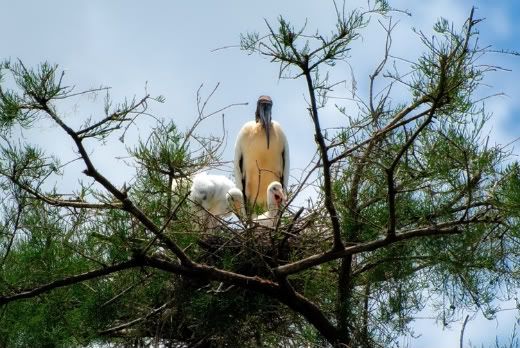
Endangered wood storks nesting in Fred George Basin, Spring 2009. Many thanks to Richard Leighton, Florida Nature Photography.
Endangered wood storks nesting in Fred George Basin, Spring 2009. Big thanks to videographer Rob Pepple.
On March 29th WPS founder Misty Penton led a community clean-up of Fred George Basin. The event was covered by WCTV CBS News. About fifteen volunteers helped remove trash and debris in order to prevent contamination of our drinking water, minimize flooding, and help protect endangered wildlife that lives nearby.
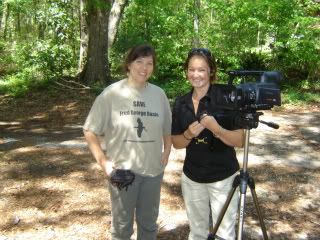
WPS founder Misty Penton with WCTV reporter Kelsey Johnson
Wildwood Preservation Society worked unsuccessfully during the recently concluded Florida legislative session to prevent lawmakers from gutting the critical Florida Forever program. Florida Forever is widely regarded as the most successful state land conservation program in the country, with more than 2 million acres of our state’s most sensitive areas having been preserved since its inception. Fred George Basin is among Florida Forever’s beneficiaries, as WPS assisted Leon County in securing Florida Forever grant funding to match costs associated with acquiring the last undeveloped portions of the basin. WPS will continue to work with the Florida Forever Coalition to restore this valuable program when next year’s budget is deliberated by our legislature.
Unfortunately, the loss of Florida Forever wasn't the only legislative activity this past session that angered conservationists. The legislature passed, and Gov. Crist signed into law, a controversial bill (SB 360) aimed at promoting more developmental sprawl. The law, which was widely criticized by municipal governments and newspaper editorial boards, was written and supported by builders and vigorously opposed by environmental groups. The Governor also signed a bill (SB 2080) that shuts out the public on important water-use decisions and allows a handful of bureaucrats to dictate permitting for large-scale wetlands destruction. Our friends at Florida Wildlife Federation have a good summary of what the 2009 legislative session means for Florida’s environment here.
We do have good news from South Florida, where a judge’s ruling will help prevent Lowe’s from building a large retail store outside of the Miami-Dade Urban Development Boundary, right up to the edge of the Everglades. This important decision should bolster efforts to stop sprawl from further encroaching on the crown jewel of Florida’s ecological landscape. Thank you to everyone who responded to last year’s action alerts that we distributed on behalf of Hold the Line and Progress Florida to stop Lowe’s reckless plan.
And finally, WPS has joined the Teaming With Wildlife Coalition, a group of more than 5,900 organizations seeking new and greater funding for wildlife conservation and related education and recreation. The coalition is working to promote wildlife action plans designed to give us the ability to conserve wildlife and the lands and waters where they live for future generations.
Wildwood Preservation Society is an all-volunteer nonprofit effort. Special thanks to our many supporters, volunteers and coalition members. Questions? Email us at wildwoodpreservation@gmail.com.

Wildwood Preservation Society is a non-profit 501(c)(4) project of the Advocacy Consortium for the Common Good. Click here to learn more.
"it's all connected"




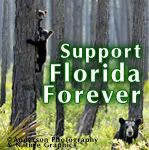





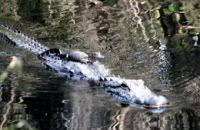
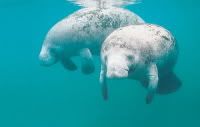


No comments:
Post a Comment